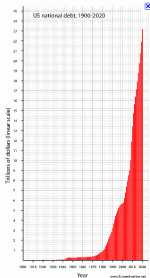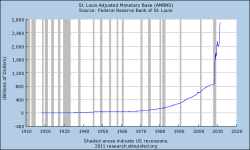oosik
Epic Contributor
I retired - quit working hard - when I was 40 and worked weird jobs locally until I could draw early retirement. That was 32 years ago. I have always had sufficient funds because I own my land and house - free and clear.
The one thing I would tell a person who is planning his retirement - - have a very good idea of exactly what you want to do in retirement. Until you can commit to a specific retirement plan - you will have little idea of how much money will be required.
People who say "save all you can" do not have a plan and probably will never be satisfied in retirement.
The one thing I would tell a person who is planning his retirement - - have a very good idea of exactly what you want to do in retirement. Until you can commit to a specific retirement plan - you will have little idea of how much money will be required.
People who say "save all you can" do not have a plan and probably will never be satisfied in retirement.


